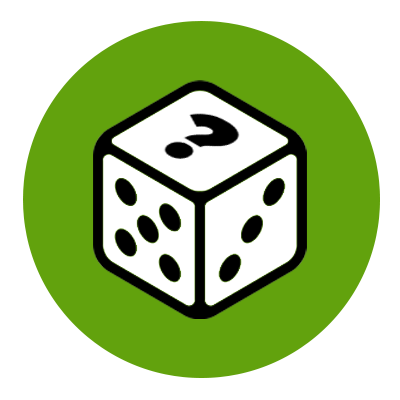How to create dramatic triangles, and why

This week's newsletter might be a little short,
because me and my partner are moving house soon. It's a new place in the city we already live in,1 and we've spend the last weeks selling off furniture and painting walls and ceilings in time for professionals to come in and do the floor. It's been fun, but also stressful and tiring.
Relating to my partner through scheduling, budgeting, and laboring for our new home reminded me of a simple definition of interesting character relationships in a role-playing game. It's from Archipelago—a game I'd love to talk about some more in a future newsletter—and it's simple, flexible, and efficient.
Complicated relationships
When I got back into role-playing in person, one of the first games I played was Hearts of Wulin.2 The group I joined would play a short campaign, and while most members were experienced, we had never played together in this constellation. Plus: this was shortly after the toughest isolation measures in the Netherlands were lifted. You can imagine we were a little hermit-y. Luckily, thanks to Wulin's Entanglements, we were wrapped up in interesting, dramatic situations before we'd even framed our first scene.
'An Entanglement is an important relationship a Player Character has with a person which is complicated by another person.' That's how Hearts of Wulin summarizes its approach to character relationships. Each playbook supplies some mad libs-style examples, and an appendix has about five pages more. They look like this:
- I know <...> desires me, but <...> , who I pine for, loves them.
- I love <...> , but their duty to <...> draws them away.
- I suspect <...> of evil, but <...> , who I respect, believes in them.
- An enemy, <...> , has come to me to change their ways, but I know my friend, <...> , will never believe them.
You could be tempted to find out a more general structure to these examples. (Or maybe that's just my personal affliction.) Something like: 'I have a certain relationship to <...> , but <...> complicates that relationship.' That's about what the book itself makes of them, right? But there's a little more there, implicitly. Most examples also define the complicating character beyond their influence upon your relationship. They are an enemy or someone of status, or they desire you, or they've betrayed you.
Triangular relationships
An Entanglement-like relationship is a triangle. Characters A and B both relate to character C, and in that way, also relate to each other. Freeform role-playing game Archipelago calls this 'an indirect relationship', wherein 'both characters are emotionally tied to a third character, event, place or other element.'3 I think it encapsulates this dramatic, triangular type of relationship in a very succinct way.
The triangle of the indirect relationship ties together several elements in the story, and, better yet, makes sure the relationship is about something. To that effect, Archipelago continues matter-of-factly:
If there’s a central conflict in the setting—a major feud between factions, a war, a race for a sacred object—it’s a good idea to have an indirect relationship through that.
A sidebar illustrates that strategy:
Herran participated in the Theocratic Revolution in her youth; another character, Pelk, was badly hurt in that same revolution. Herran and Pelk now have an indirect relationship.
Not only are Herran and Pelk now linked, they both have a stake in the history and politics of the narrative as well.
Constructive relationships
Contrary to most examples here, I don't believe the dramatic triangle is inherently oppositional. Hearts of Wulin is an epic soap opera, so there's no surprise its Entanglements strive to create conflict. Archipelago's indirect relationships are more open. On and off, I've been musing about creating stories that have less to do with antagonism and interpersonal conflict. I wonder if one could find a more constructive use of Archipelago's relationships in a game about community making, for example.
But that's it for now,
Hendrik ten Napel
-
But this one has a bathtub! ↩
-
Hearts of Wulin, written by Joyce Ch*ng and Lowell Francis. ↩
-
Archipelago, by Matthijs Holter (specifically the third edition). ↩